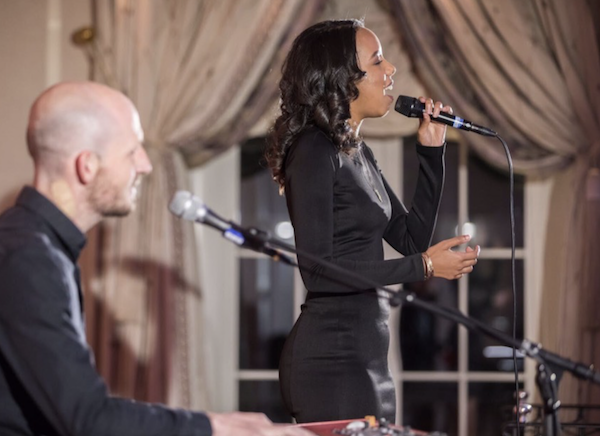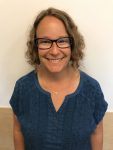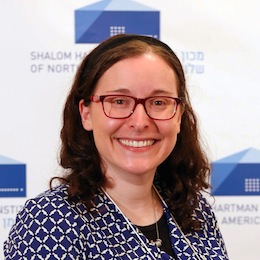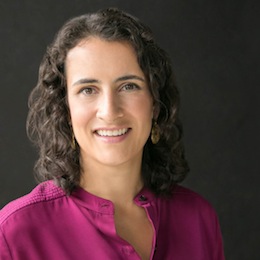Hagit Yaso, who was part of Metro Vancouver’s celebration of Yom Ha’atzmaut in 2014, is among the Israeli performers who will be joining the online event this year. (photo from hagityaso.com/en/home)
The Jewish Federation of Greater Vancouver and its 46 community partners, which includes the Jewish Independent, will be marking Israel’s 73rd birthday with a virtual celebration April 14 at 7:30 p.m. This year’s special hour-long event will include performances by both Israeli and local artists, as well as some surprises.
For the past 17 years, Federation has joined forces with Eti Lam, a Tel Aviv producer who specializes in bringing Israeli artists to Jewish communities around the world.
“Producing an event like Israel’s Independence Day requires lots of work and long-term collaboration between the community and myself,” Lam told the Independent. “It usually starts with searching for the right artist that is happy to come to Vancouver on this special date, building a suitable show, rehearsing it back in Israel, and many more activities. And, as with everything, the price should be right to the budget.”
This can take time, she confessed. “Some years, it took the Federation team and me a whole year to find and deliver the right show.”
With the pandemic, things are even more challenging, but the situation also offers a unique opportunity.
“Considering the COVID-19 limitations, we couldn’t meet in the concert hall,” said Lam. “Still, the show must go on. We approached multiple artists that performed in Vancouver in the past and the responses were amazing, so we’ll get to celebrate together this year, too. The performance will be broadcast online, without compromising the uniqueness and festivity of Israel’s Independence Day.”
Lam lauded the Vancouver audience, calling it “truly one of a kind, special and unique.”
“Every year,” she said, “1,200 people gathered together to celebrate Israel’s Independence Day with an Israeli artist. Being able to produce this event year over year for the last 17 years has been a great privilege. It’s been successful thanks to the close relationship with the incredible people in the Federation and in the community. Whenever I arrived in Vancouver, I felt that I had returned to celebrate with a close group of my friends, part of a warm and loving community. I’d like to take this opportunity to thank all the Federation and community members for their help, support and partnership over the years.”
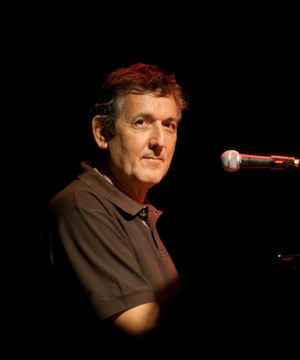
The evening lineup is set to include various dance groups and artists, as well as students from Richmond Jewish Day School (RJDS) and Vancouver Talmud Torah singing the Canadian and Israeli national anthems. Local talents Orr Chadash, Orr Atid, Duo Orr and Grade 6 dancers from RJDS will join Israeli artists Yoni Rechter, Nurit Galron, Hagit Yaso, Micha Bitton and Shlomit Aharon for the broadcast. This year’s event will also feature a community Koolulam-style video, a version of “Bashana Haba’ah” in which different members of the community sing a line, a verse or the chorus.
Yom Ha’atzmaut celebrations go back a long way in Vancouver, though prior to 2002 they were done at a slightly smaller scale, with the exception of Israel’s 50th anniversary in 1998 at the Orpheum. This year, because a plethora of virtual (and worldwide) programs, events and webinars have led to “Zoom fatigue,” Federation decided to “go local” and highlight community talents.
To even localize the Israeli component, Federation invited the Israeli artists, who have performed here before in person on Yom Ha’atzmaut, to dedicate a song to the community. Additionally, organizers have promised a surprise that they feel confident will go down well with the community.
Emceeing this year’s event will be JCC sports coordinator Kyle Berger, who also is a stand-up comedian, and King David High School counselor Lu Winters.
“Once we realized COVID restrictions weren’t going to allow Seth Rogen and Sarah Silverman to do it, we were hoping we’d be asked,” said Berger. “The fact that it’ll be on Zoom means they’ll be able to make us look fitter and younger than we actually are, which is another awesome perk.”
Berger and Winters, along with a handful of staff and crew, will be filming and streaming the show from a production studio in Burnaby. “But, when we close our eyes, we will be live from Israel,” said Berger.
“Thankfully, we will both be there doing the show together and will be able to feed off of each other’s energy and nerves. Of course, we will still be 6.13 feet apart while filming,” assured Berger, who has worked with Winters before, as co-delegation heads for the JCC Maccabi Games.
He vowed that “everyone should expect an incredibly fun evening celebrating our community’s special connection with Israel, especially our unique relationship with our partnership region in the Galilee Panhandle. Think Dick Clark’s New Year’s Rockin’ Eve meets the Academy Awards – produced by the same number of Jews, but with less famous hosts.”
Nava, Omnitsky and the Perfect Bite are all offering special Yom Ha’atzmaut menus for April 14. Register at jewishvancouver.com/yh2021 to join the celebration.
Also on April 14, the Jewish Federation of Victoria and Vancouver Island will be hosting a small program via Zoom with an Israeli-themed picnic. Registrants will be able to pick up their meal (drive-through) and enjoy it while participating in the Zoom program. To register, send an email to [email protected].
Sam Margolis has written for the Globe and Mail, the National Post, UPI and MSNBC.

